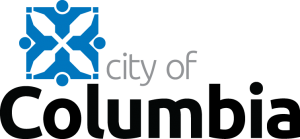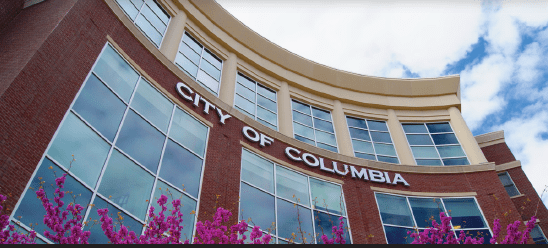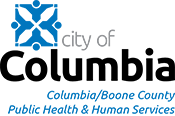- Resident
-
-
Parking and Transportation
- Columbia Regional Airport
- GoCoMo Transit
- Live Bus Routes
- Parking Tickets
- Parking Utility
- Snow and Ice Management
Assistance Programs
- Housing Programs Division
- Social Services
- Assistance Resources
-
-
-
- Business
-
-
Tools and Payment Portals
- General Billing Payments / Munis CSS
- Citizen Self-Service Instructions
- Minority and Women Owned Businesses Directory
Finance
- Online Business Licenses and Building Permits (CSS)
- Bid Solicitations / Vendor Registration
- Business Licenses
- Pay Hotel/Motel Taxes
- Approved Cooperatives List
- Pay Invoice
-
Planning, Building and Zoning
- Building and Site Development
- Unified Development Code
- Zoning Map
-
-
-
-
- Visitors
-
-
Convention & Visitors Bureau
-
-
- Government
-
-
Departments
-
- Services
-
-
Service Categories A-Z
-
-
-
Cooling centers are available to the general public during the location’s normal business hours. The public is allowed access to public areas, such as lobbies, restrooms, drinking fountains, etc. Columbia's current official cooling centers include:
- Activity & Recreation Center (ARC) at 1701 W. Ash St. - 573.874.7700
- Armory Sports and Community Center at 701 E. Ash St. - 573.817.5077
- Boone County Government Center at 801 E. Walnut St. - 573.886.4305
- Columbia/Boone County Department of Public Health and Human Services at 1005 W. Worley St. - 573.874.7355
- Salvation Army at 1108 W. Ash St. - 573.442.3229
- Salvation Army Harbor House at 602 N. Ann St. - 573.442.1984
- It is recommended that residents call ahead of arrival to verify the operating hours of the cooling center. It is important that when visiting a cooling site, everyone continues to maintain social distancing, wash hands frequently, maintain 6 feet of physical distance between yourself and those outside of your household, cover your cough or sneeze with your elbow or sleeve and comply with the mask ordinance.
Heatstroke is the most serious heat-related illness. It occurs when the body becomes unable to control its temperature: the body's temperature rises rapidly, the sweating mechanism fails and the body is unable to cool down. Body temperature may rise to 106 degrees or higher within 10 to 15 minutes. Heatstroke can cause death or permanent disability if emergency treatment is not provided. Warning signs of heatstroke vary but may include an extremely high body temperature (above 103 degrees), red, hot, and dry skin (no sweating), rapid, strong pulse, throbbing headache, dizziness, nausea, confusion and loss of consciousness.
Heat-related death or illnesses are preventable if you follow a few simple steps:
- Stay in an air-conditioned area during the hottest hours of the day. If you don't have air conditioning in your home, go to a public place such as a shopping mall or a library to stay cool.
- Wear light, loose-fitting clothing.
- Drink water often. Don't wait until you are thirsty. Stay hydrated.
- If you work outside or if you are in a building without air conditioning take frequent breaks.
- Avoid unnecessary sun exposure. When in the sun, wear a hat, preferably with a wide brim.
- Apply sunscreen of SPF 15 or higher 30 minutes prior to going out. Continue to reapply it according to the package directions. Look for sunscreens that say "broad spectrum" or "UVA/UVB protection" on their labels, these products work best.
- People 65 and older, young children, and people with pre-existing medical conditions, such as cardiovascular disease, diabetes, or respiratory illness, are at greatest risk for heat-related illness.
- People who work outside or spend a lot of time outdoors, such as athletes.
- People who may be socially isolated, including individuals experiencing homelessness and elderly residents.
- Those infected with, or recovering from, COVID-19 may be vulnerable to heat stress.
- People taking certain medications. Be sure to consult a doctor about the medications you are taking and extreme heat.
- Those who are overweight and obese.
- Women who are pregnant.
- Vulnerable populations may also be in more precarious social and economic conditions due to COVID-19, including from lost wages, increased isolation and strains or gaps in social networks. This can increase vulnerability to extreme heat risk by limiting healthcare access, transport options, food security and access to utilities like air conditioners.
For more information on cooling centers or our utility assistance programs, please visit the City of Columbia website at CoMo.gov/Health.



